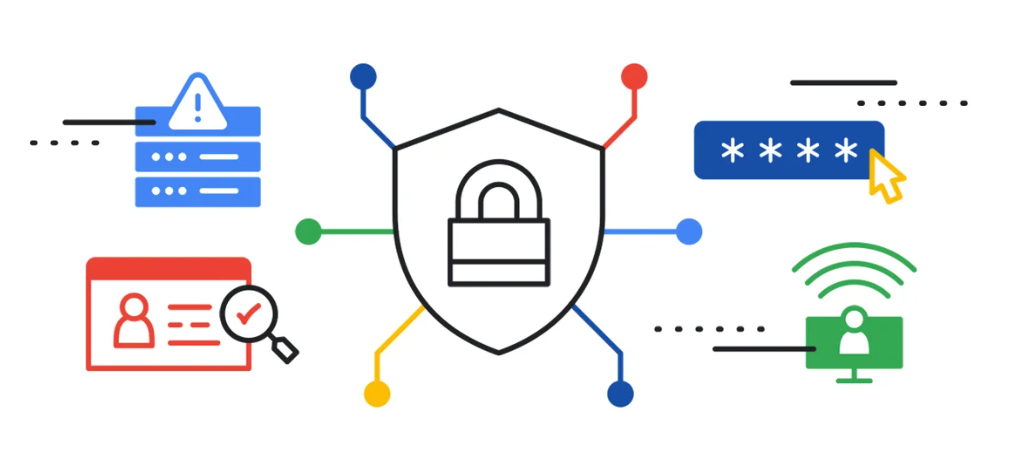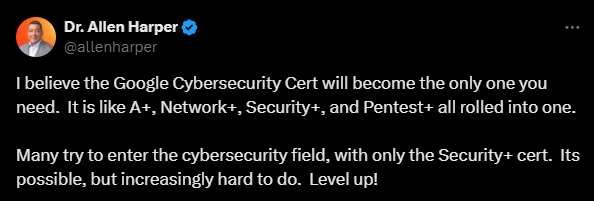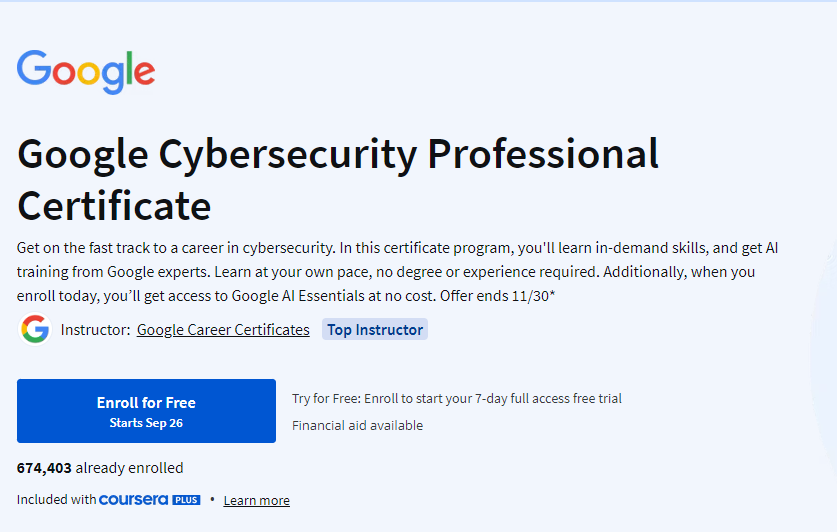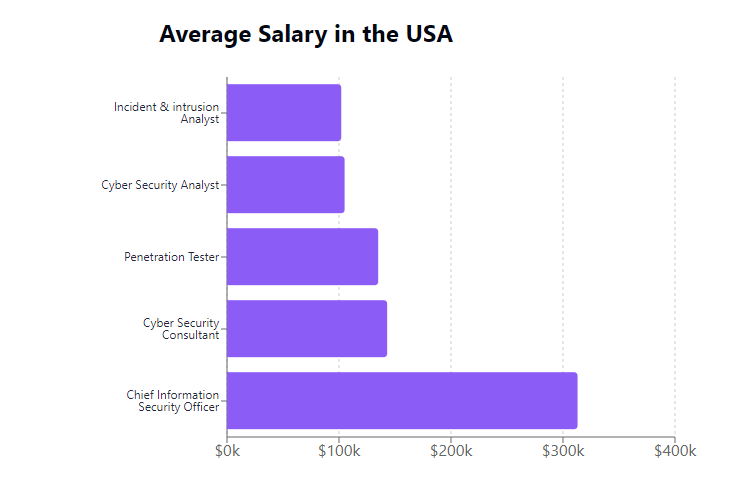Introduction
Did you know that cybercrime damages are projected to cost the world $10.5 trillion annually by 2025? As the digital landscape expands, so does the need for skilled cybersecurity professionals. If you’re looking to break into this booming field or advance your existing career, the Google Cybersecurity Certification might be your golden ticket. In this article, we’ll explore what this certification entails, its benefits, how it compares to other top cybersecurity certifications, and how you can get started.
What is the Google Cybersecurity Certification?
The Google Cybersecurity Certification is a comprehensive program developed to bridge the gap between the growing demand for cybersecurity professionals and the limited supply of qualified individuals. Launched as part of Google’s initiative to make tech education more accessible, the certification aims to provide learners with the knowledge and skills necessary to protect organizations from cyber threats.
Program Structure and Curriculum
The certification program is divided into several modules that cover a wide range of topics:
- Introduction to Cybersecurity
- Understanding the landscape of cyber threats.
- Overview of cybersecurity principles.
- Network Security
- Securing network architectures.
- Implementing firewalls and intrusion detection systems.
- Application Security
- Securing software applications.
- Understanding vulnerabilities and mitigation strategies.
- Data Protection and Cryptography
- Encryption techniques.
- Data integrity and confidentiality.
- Identity and Access Management
- Authentication methods.
- Authorization protocols.
- Incident Response and Recovery
- Developing incident response plans.
- Disaster recovery strategies.
- Compliance and Regulations
- Understanding laws like GDPR and HIPAA.
- Ethical considerations in cybersecurity.
Each module includes interactive lessons, quizzes, and hands-on projects to reinforce learning.

Learning Outcomes
By the end of the program, you will be able to:
- Identify and mitigate various types of cyber threats.
- Implement security measures across networks and applications.
- Develop and manage security policies and procedures.
- Conduct risk assessments and compliance audits.
Benefits of the Google Cybersecurity Certification
Earning the Google Cybersecurity Certification offers numerous advantages for both newcomers and seasoned professionals.
Industry Recognition
Being certified by Google, a global leader in technology, adds significant credibility to your professional profile. Employers value certifications from reputable organizations, and Google’s brand recognition can give you a competitive edge in the job market.
Skill Enhancement
- Up-to-Date Knowledge: The cybersecurity landscape evolves rapidly. Google’s certification program is regularly updated to include the latest threats, technologies, and best practices, ensuring that your knowledge remains current.
- Hands-On Experience: The program emphasizes practical skills through labs and projects. You’ll work on real-world scenarios, such as simulating cyber-attacks and implementing defense mechanisms, which prepares you for actual job responsibilities.
- Comprehensive Curriculum: Covers a broad spectrum of topics from basic principles to advanced security measures, making you a well-rounded professional.

Career Advancement
- Higher Earning Potential: According to industry reports, certified cybersecurity professionals earn significantly more than their non-certified counterparts. The investment in certification can pay off in the form of better salary packages.
- Job Opportunities: The demand for cybersecurity experts is at an all-time high. With this certification, you can explore roles in various sectors, including finance, healthcare, government, and technology.
- Professional Network: Becoming part of Google’s community of certified professionals offers networking opportunities, which can lead to mentorship and job referrals.
For tips on starting your career in cybersecurity, read our article on entry level cybersecurity jobs.
How to Enroll and Prepare for the Certification
Getting started with the Google Cybersecurity Certification is straightforward, but proper preparation is key to success.
Enrollment Process
- Visit the Official Website: Navigate to the Google Career Certificates page or the specific cybersecurity certification section. – Google Certifications
- Choose the Cybersecurity Certification: Review the program details to ensure it aligns with your career goals.
- Register: Create a Google account if you don’t have one. Complete the registration form with your personal details.
- Select Learning Platform: The program may be offered through online learning platforms like Coursera or edX. Choose the one that suits you best.
- Payment and Subscription: Depending on the platform, you might pay a monthly subscription or a one-time fee. Some platforms offer financial aid or free trials.

Preparation Tips
- Set a Study Schedule: Allocate specific times during the week dedicated to studying. Consistency is crucial for retaining information.
- Utilize Study Materials: Take advantage of all the resources provided, including reading materials, videos, and practice exercises.
- Engage in Forums: Join online communities or forums related to the certification. Engaging with peers can enhance understanding and provide support.
- Practice Hands-On Labs: Don’t just read about concepts; apply them in the labs to gain practical experience.
- Mock Exams: Take practice tests to assess your knowledge and identify areas that need improvement.
Additional Resources
- Supplementary Courses: Consider enrolling in additional courses that focus on specific areas like ethical hacking or cloud security.
- Books and Publications: Read industry publications and books to deepen your understanding.
- Webinars and Workshops: Attend online events hosted by cybersecurity experts to stay updated on industry trends.
Comparing Google Cybersecurity Certification with Other Top Certifications
When considering cybersecurity certifications, it’s essential to compare your options to make an informed decision.
Google Cybersecurity Certification
- Pros:
- Backed by Google’s brand and expertise.
- Up-to-date curriculum reflecting current industry standards.
- Emphasis on practical, hands-on experience.
- Accessible to beginners with no prior experience.
- Cons:
- Relatively new compared to established certifications.
- May not be as widely recognized yet in some traditional sectors.
Other Top Cybersecurity Certifications
- CompTIA Security+
- Overview: A globally recognized certification that validates foundational skills.
- Pros:
- Vendor-neutral, applicable across various technologies.
- Widely accepted in the industry.
- Cons:
- More theoretical, less focus on hands-on practice.
- Certified Information Systems Security Professional (CISSP)
- Overview: An advanced certification for experienced professionals.
- Pros:
- Highly respected, often required for senior positions.
- Comprehensive coverage of multiple domains.
- Cons:
- Requires at least five years of professional experience.
- The exam is considered challenging.
- Certified Ethical Hacker (CEH)
- Overview: Focuses on the offensive aspects of cybersecurity.
- Pros:
- Ideal for those interested in penetration testing.
- Provides in-depth knowledge of hacking tools and techniques.
- Cons:
- May be too specialized for those seeking a broad overview.
Factors to Consider When Choosing a Certification
- Career Goals: Align the certification with your desired career path.
- Experience Level: Some certifications require prior experience.
- Industry Demand: Research which certifications are preferred in your target industry.
- Cost and Time Investment: Consider the financial and time commitments required.
| Feature | Details |
|---|---|
| Name | Google Cybersecurity Professional Certificate |
| Provider | Google, offered through Coursera |
| Duration | Approximately 6 months (at 10 hours/week) |
| Level | Beginner-friendly, no prior experience required |
| Format | Online, self-paced |
| Content | 8 courses covering various cybersecurity topics |
| Key Topics | – Network security – Python programming – Linux – SQL – SIEM tools – Incident response – Threat analysis |
| Hands-on Experience | Includes practical labs and real-world simulations |
| Job Readiness | Prepares for entry-level roles in cybersecurity |
| Career Support | Resume building and interview preparation included |
| Cost | Varies (check Coursera for current pricing) |
| Certificate | Shareable certificate upon completion |
| Industry Recognition | Recognized by multiple companies for entry-level positions |
| Prerequisites | None, suitable for career changers and beginners |
| Learning Outcomes | – Understand core cybersecurity concepts – Gain practical skills in security tools – Develop a security mindset |
Career Opportunities After Certification
With the Google Cybersecurity Certification under your belt, a plethora of career paths become accessible.
Potential Job Roles
- Cybersecurity Analyst: Monitor networks for security breaches and investigate violations when they occur.
- Information Security Manager: Develop and implement security policies and procedures.
- Security Consultant: Provide expert advice to organizations on how to protect their data and systems.
- Ethical Hacker/Penetration Tester: Simulate cyber-attacks to identify vulnerabilities in systems.
- Security Architect: Design and build secure network systems.
Industries in Demand
- Finance: Banks and financial institutions prioritize cybersecurity to protect sensitive customer data.
- Healthcare: Protecting patient data and complying with regulations like HIPAA.
- Government Agencies: National security depends on robust cybersecurity measures.
- Technology Companies: Tech firms require advanced security to safeguard their innovations.
- E-commerce: Online retailers need to protect customer payment information.
Salary Expectations
- Entry-Level Positions: Average salaries range from $70,000 to $85,000 annually.
- Mid-Level Positions: Professionals can earn between $90,000 to $110,000.
- Senior-Level Positions: Salaries can exceed $130,000, depending on experience and location.

Continuing Education and Growth
Cybersecurity is a field that requires continuous learning due to the evolving nature of cyber threats.
- Advanced Certifications: Consider pursuing additional certifications like CISSP or CISM for higher-level positions.
- Specializations: Focus on niche areas like cloud security, IoT security, or artificial intelligence.
- Higher Education: Earning a master’s degree in cybersecurity or a related field can further enhance career prospects.
Conclusion
In a world where cyber threats are ever-increasing, the Google Cybersecurity Certification offers a valuable opportunity to develop essential skills and advance your career. Whether you’re new to the field or looking to upskill, this certification provides the tools and knowledge you need to succeed. So why wait? Take the first step towards becoming a certified cybersecurity professional today!
Ready to embark on your cybersecurity journey? Enroll in the Google Cybersecurity Certification program now and unlock new career possibilities!
FAQs
1. What is the cost of the Google Cybersecurity Certification?
The cost varies depending on the platform and any available promotions. Typically, the program may offer a monthly subscription model. Check the official Google certification page for the most current pricing (offered through a monthly subscription to Coursera.
2. Do I need prior experience in cybersecurity to enroll?
No prior experience is required. The certification is designed to cater to beginners as well as professionals looking to enhance their skills.
3. How long does it take to complete the certification?
The program is self-paced but generally takes 3-6 months to complete, depending on your schedule and commitment.
4. Is the Google Cybersecurity Certification recognized globally?
Yes, the certification is recognized worldwide and is valued by employers across various industries.
5. Can the certification help me land a job at Google?
While the certification enhances your skills and employability, landing a job at Google would depend on various factors, including experience and job availability.

